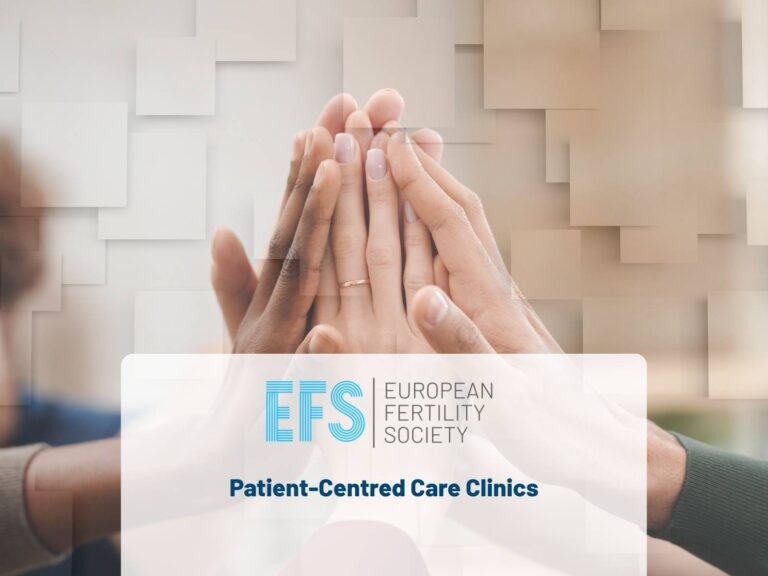Last Updated: September 3, 2025
IVF treatment can be funded on the NHS, but eligibility depends on where in the UK you live. While the NHS provides a pathway for couples and individuals to access fertility care, the rules surrounding availability are shaped by age, lifestyle, and regional funding decisions. This uneven distribution is often referred to as the “postcode lottery” of IVF.
This guide explores how NHS-funded IVF works across England, Scotland, Wales, and Northern Ireland. You will learn about:
- Eligibility criteria and age limits
- Regional differences in access
- The step-by-step NHS IVF process
- Waiting times across the UK
- Costs of NHS-funded versus private IVF
- Why some patients consider IVF abroad
- Common questions about eligibility for single women, same-sex couples, and add-on treatments
By the end, you’ll have a clear understanding of how NHS IVF funding is structured and what options exist if you do not qualify for full support.
Quick Summary of NHS IVF in the UK
The rules for NHS-funded IVF vary across the UK:
- England: Eligibility is determined by local authorities. Some regions fund up to three cycles, while others provide no funding at all.
- Scotland: The most consistent approach. Women under 40 are eligible for up to three cycles, with criteria applied evenly across the country.
- Wales: Two cycles are funded for eligible women under 40.
- Northern Ireland: Only one funded cycle is available for women under 40.
Key eligibility factors across the UK include:
- Age limits (most commonly under 40, with some exceptions up to 42).
- A BMI range of 19–30 for both partners.
- No children from previous relationships in many English regions.
- A stable cohabiting relationship, often requiring one to three years together.
- Previous IVF cycles, whether NHS or private, can affect eligibility.
The NHS generally covers basic IVF. More advanced treatments, such as intracytoplasmic sperm injection (ICSI) or genetic testing, are usually not funded.
The “Postcode Lottery” of IVF Funding
The NHS does not operate under a single, national fertility policy. Instead, funding decisions are delegated to local Integrated Care Boards (ICBs) in England and equivalent bodies in Scotland, Wales, and Northern Ireland.
While the National Institute for Health and Care Excellence (NICE) issues guidelines, recommending up to three cycles for women under 40 and one cycle for women aged 40–42 if certain conditions are met, these are not legally binding. Each region decides how to apply the guidelines in practice.
As a result, two women in the same circumstances may receive very different levels of support depending solely on where they live. For example, a woman in Scotland may be offered three cycles, while a woman in England with identical medical circumstances might not qualify at all.
Lifestyle rules also vary by region. Some authorities strictly enforce requirements such as being smoke-free or maintaining a healthy BMI, while others may be more flexible.
This system means that access to NHS IVF is not determined only by medical need, but also by geographic location.
NHS IVF Eligibility Criteria: What You Need to Know
Although the details differ, most regions apply similar basic rules. These include:
Age Requirements
- Women under 40 may qualify for up to three funded IVF cycles.
- Women aged 40–42 may qualify for one cycle if ovarian reserve is good and no prior IVF treatment has been attempted.
Fertility History
- Couples are often required to show two to three years of trying to conceive naturally.
- Same-sex couples may need to demonstrate unsuccessful donor insemination cycles before qualifying for IVF.
BMI Restrictions
- Both partners are usually required to have a BMI within the 19–30 range.
- Falling outside this range can delay or disqualify treatment.
Relationship Status
- Many areas require couples to be in a stable, cohabiting relationship for one to three years.
- Some regions extend eligibility to single women, but this is not applied consistently.
Parental Status
- In most English regions, couples are excluded if either partner already has children from a previous relationship.
- Other parts of the UK apply this condition differently.
Lifestyle Factors
- Patients must not be smokers.
- Alcohol use should be moderate.
- Recreational drug use is prohibited.
Patient scenario:
Emma and David, both 34, live in England. They have been trying for a baby for three years. Emma has no children, a healthy BMI, and meets all the medical requirements. However, David has a son from a previous relationship. In their local area, this makes them ineligible for NHS-funded IVF, even though Emma has never had children herself.
This highlights how strict regional rules can prevent families from accessing treatment.
Regional Access to NHS IVF
England: Wide Variation
England shows the greatest differences in provision. Some areas fund up to three cycles, while others fund none at all.
- Around 90 percent of ICBs exclude couples if either partner has a child.
- BMI restrictions apply, usually between 19 and 30.
- Lifestyle rules include non-smoking and limits on alcohol consumption. In some areas, patients must complete stop-smoking programs before applying.
- Couples must often prove a stable cohabiting relationship lasting one to three years.
- Same-sex couples are not consistently included in funding rules.
Scotland:
Scotland offers the most equitable system across the UK.
- Women under 40 are entitled to up to three cycles, provided they meet the other conditions.
- Couples must have been in a stable relationship for at least two years.
- Lifestyle requirements include maintaining a healthy BMI, being non-smokers, and avoiding drugs and excess alcohol.
- Same-sex couples are eligible but must usually undergo donor insemination cycles before progressing to IVF.
Wales:
Wales applies its rules uniformly across the nation.
- Women under 40 can access two cycles.
- At least one partner must be child-free.
- Men must be under 55; women must be over 20.
- Lifestyle criteria include a BMI of 19–30 and being non-smoking.
- Patients who have already had three cycles, whether privately or through the NHS, are not eligible.
Northern Ireland: Limited Support
Northern Ireland has the narrowest offering of all four nations.
- Women under 40 are entitled to one NHS-funded cycle.
- Both partners must have a BMI within the 19–30 range.
- Neither partner can have been sterilised.
- No more than three prior IVF cycles are allowed.
- Couples must meet the Human Fertilisation and Embryology Authority (HFEA) welfare of the child requirements.
- Same-sex couples are eligible.
For many in Northern Ireland, the single funded attempt means private treatment becomes the only option if that cycle is unsuccessful.
Step-by-Step: How NHS IVF Works
The process for NHS-funded IVF typically follows these stages:
- GP Consultation
- The GP reviews your fertility history and local eligibility rules.
- If criteria are met, you are referred to a fertility specialist.
- The GP reviews your fertility history and local eligibility rules.
- Fertility Tests
- Blood tests are carried out to assess hormones and ovarian reserve.
- Semen analysis evaluates sperm count, motility, and morphology.
- Ultrasound scans check for conditions such as fibroids or cysts.
- Blood tests are carried out to assess hormones and ovarian reserve.
- Funding Application
- The fertility specialist applies for funding from the local ICB.
- Approval can take six to eight weeks or more, depending on available budgets.
- The fertility specialist applies for funding from the local ICB.
- Waiting List
- Waiting times vary across the UK:
- England: six months to over two years
- Scotland: six to 18 months
- Wales: six to 18 months
- Northern Ireland: six months to over two years
- England: six months to over two years
- Waiting times vary across the UK:
- Treatment Begins
- Once funding is approved and your place on the waiting list comes up, treatment begins at an NHS-approved fertility clinic.
- Where multiple clinics are available, patients may compare success rates, facilities, and reviews before choosing.
- Once funding is approved and your place on the waiting list comes up, treatment begins at an NHS-approved fertility clinic.
NHS vs. Private IVF: Cost Breakdown
What the NHS Covers
NHS-funded IVF generally includes:
- Initial consultations
- Basic fertility drugs
- Egg collection
- Embryo transfer
It does not usually cover:
- ICSI (used in cases of male infertility)
- Genetic testing (PGT)
- Advanced treatment add-ons
What Private IVF Costs
Private clinics cover the full range of treatments, but costs are significant:
- IVF using your own eggs typically costs £3,500–£7,000 per cycle, excluding medication.
- Egg donation IVF ranges from £7,000–£12,000 per cycle.
Additional Private Costs
- Embryo freezing: £600–£1,250 per year
- ICSI: £800–£1,400
- Blastocyst culture: £400–£800
- Genetic testing (PGT-A): £1,600–£3,550
You may be interested in reading: IVF cost in the UK – a guide to private IVF costs
Patient scenario:
Lucy, 39, qualifies for one NHS-funded cycle. However, her specialist recommends ICSI due to her partner’s sperm quality. Because ICSI is not funded by the NHS, she must pay more than £1,000 out of pocket, even though the cycle itself is covered.
Considering IVF Abroad
For patients who do not qualify for NHS funding or who face long waiting times, IVF abroad can be an alternative.
- Spain: IVF costs range between £3,000–£5,600 for treatments with own eggs. Advanced procedures such as egg donation or genetic testing are also widely available, with higher costs reflecting these options.
- Greece: Prices start from around £2,200–£3,000 for standard IVF cycles (own eggs). Patients often choose Greece for shorter waiting times and additional options such as affordable embryo freezing.
- Czech Republic: IVF with own eggs typically costs £1,800–£3,000. The country is known for budget-friendly packages tailored to international patients, making it one of the most accessible destinations in Europe.
Advantages of IVF abroad include:
- Lower costs than private treatment in the UK
- Shorter waiting times
- Package deals that may include several services
Disadvantages include:
- Different legal rules on donor anonymity and embryo limits
- Additional costs for travel and accommodation
- Variability in clinic quality, making research essential
FAQs: NHS IVF in the UK
How does NHS IVF compare with private treatment?
NHS treatment covers the basics, while private IVF costs between £5,000 and £10,000 per cycle and offers advanced options not funded on the NHS.
Can single women access NHS IVF?
Eligibility depends on the region. Some areas allow it, others do not.
What about same-sex couples?
Some regions exclude IVF for same-sex couples, while others fund donor insemination first. In Scotland, donor insemination cycles are offered before IVF.
What if I have had previous IVF cycles?
In Wales and Northern Ireland, patients who have had three previous cycles, whether privately or through the NHS, are not eligible.
Why do some patients go abroad for IVF?
Common reasons include lower costs, shorter waiting times, and bundled treatment packages. However, legal and ethical rules may differ.
Final Thoughts
NHS-funded IVF provides essential support for many families, but access varies widely across the UK. For some, location is the deciding factor in whether treatment is available.
For those who do not qualify, private treatment and international options exist, though they come with additional financial and practical challenges.



